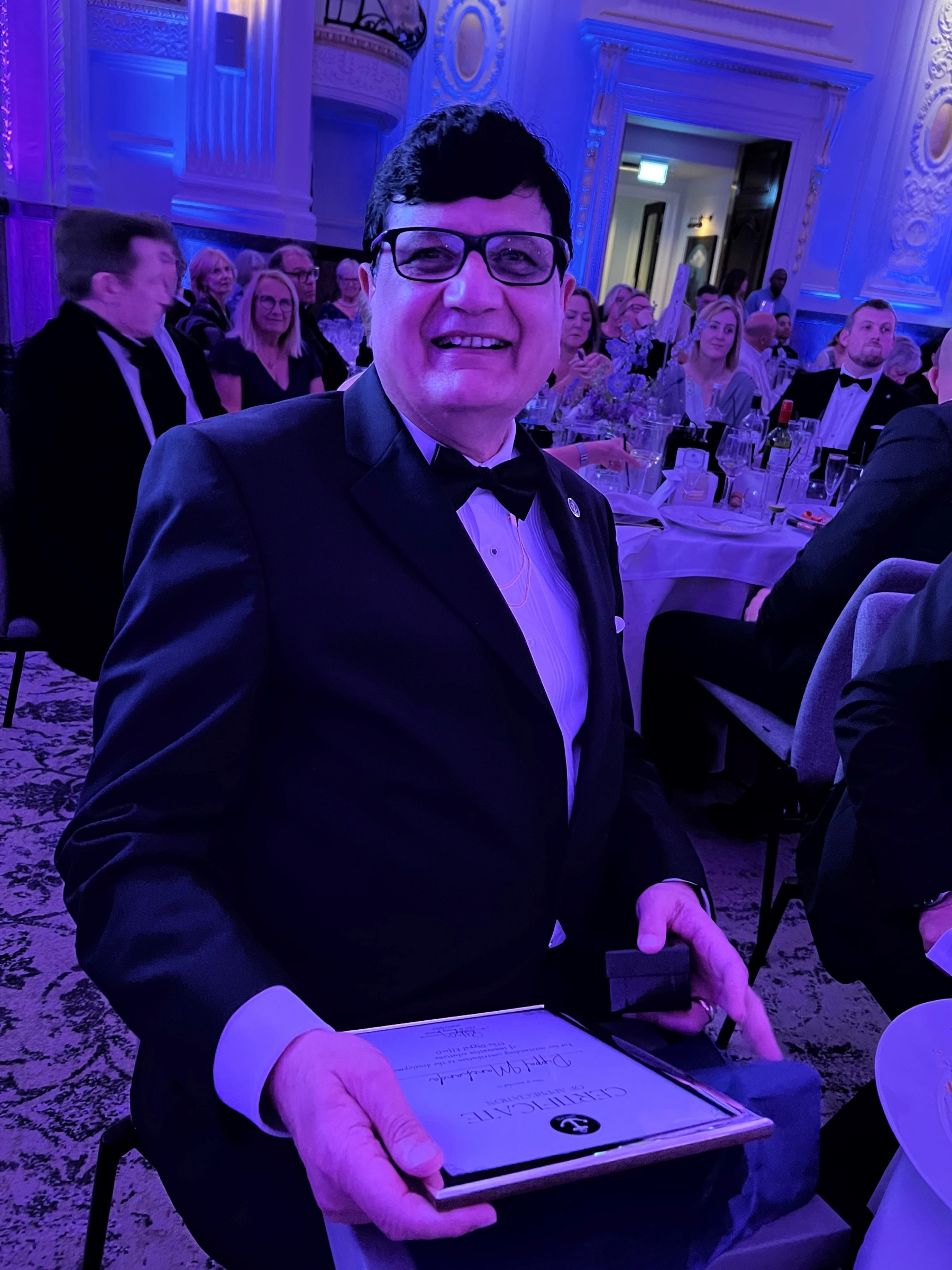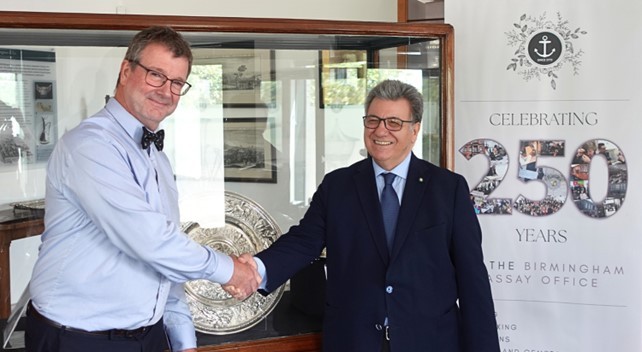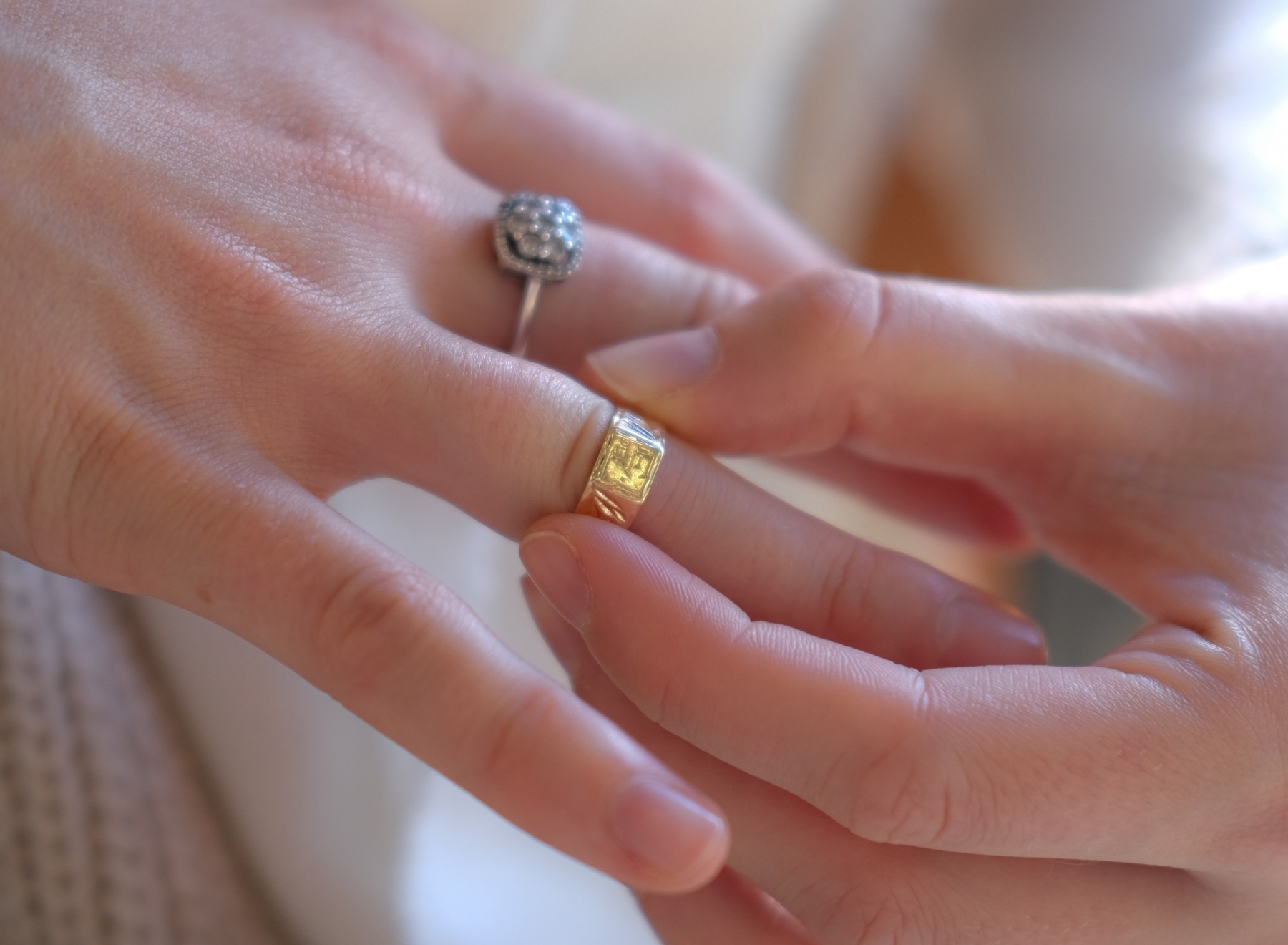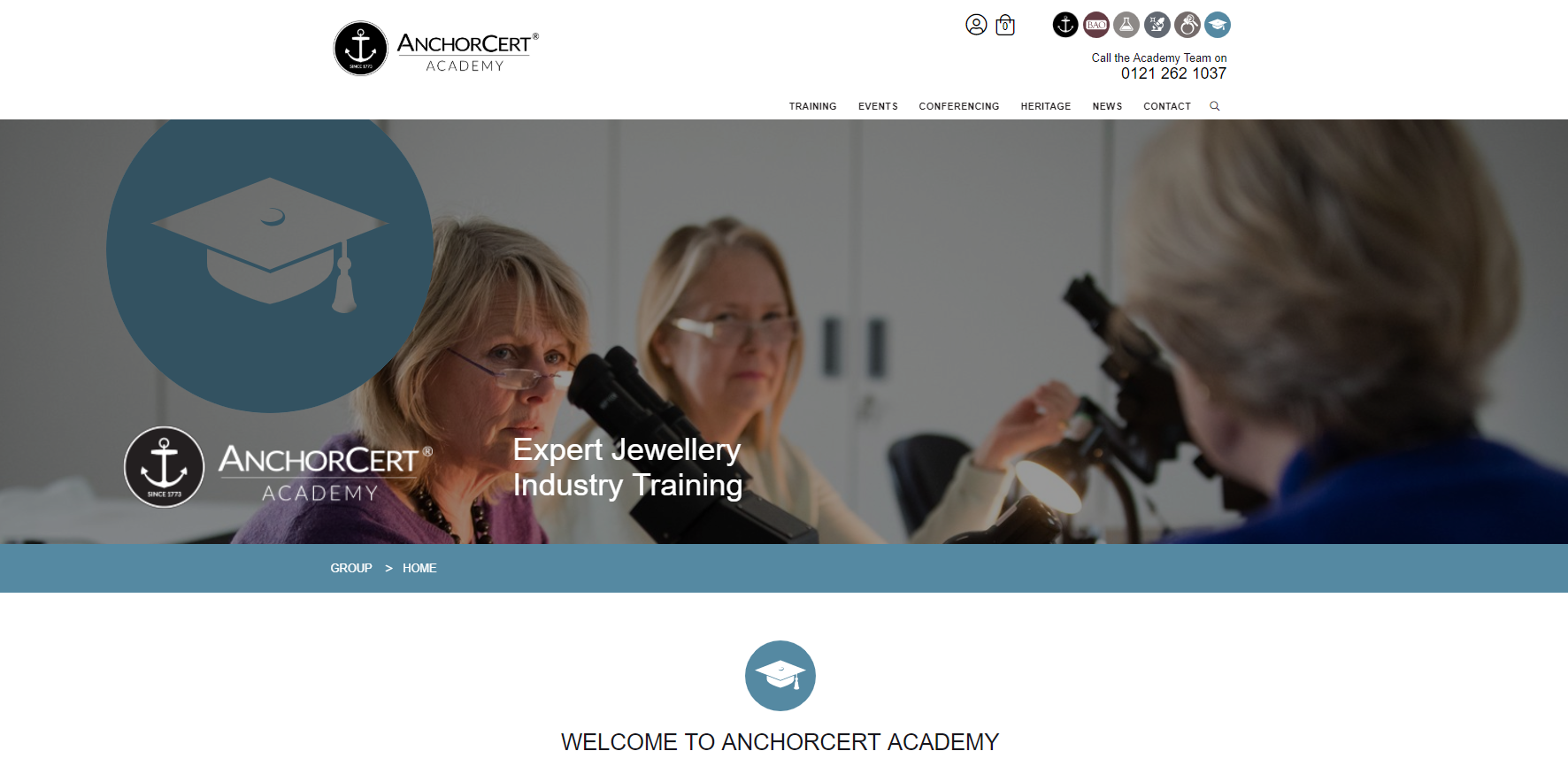The Great Debate, an initiative delivered in partnership between The Birmingham Assay Office and Reed Exhibitions once again covered new, thought provoking ground at IJL yesterday. Panellists Daniela Nordmeyer from fashion giant Monsoon Accessorize and fresh produce grower turned jeweller Alan Frampton drew some interesting parallels with other industries to make the capacity audience sit up and take notice.
[caption id="attachment_6282" align="aligncenter" width="300"] Alan Frampton - Cred Jewellery, Daniela Nordmeyer - Monsoon Accessorize, Catherine Sproule - RJC Responsible Jewellery Council, Michael Allchin - The Birmingham Assay Office[/caption]
Daniela, an established practitioner with hands on experience of ethical trading issues in the fashion industry,  gave a fascinating insight into the ways in which large fashion companies implement the principles of the industryâs  Ethical Trading Initiative and strive to ensure that every element of their long supply chain complies with the code. Daniela highlighted the challenges arising from the limited but specific skills of some of the communities hand-making fashion jewellery products such as wooden and bead items and the difficulties in encouraging such people to continually create new designs to feed the developed worldâs appetite for fashion trends. She also explained the amount of work that went into establishing a fair piece rate for such workers,  particularly vulnerable homeworkers, and other challenges faced by the fashion jewellery industry.
Alan Frampton - Cred Jewellery, Daniela Nordmeyer - Monsoon Accessorize, Catherine Sproule - RJC Responsible Jewellery Council, Michael Allchin - The Birmingham Assay Office[/caption]
Daniela, an established practitioner with hands on experience of ethical trading issues in the fashion industry,  gave a fascinating insight into the ways in which large fashion companies implement the principles of the industryâs  Ethical Trading Initiative and strive to ensure that every element of their long supply chain complies with the code. Daniela highlighted the challenges arising from the limited but specific skills of some of the communities hand-making fashion jewellery products such as wooden and bead items and the difficulties in encouraging such people to continually create new designs to feed the developed worldâs appetite for fashion trends. She also explained the amount of work that went into establishing a fair piece rate for such workers,  particularly vulnerable homeworkers, and other challenges faced by the fashion jewellery industry.
![IMG_3157[1]](/wx-uploads/img/large/archive/2013/09/IMG315711-300x199.jpg) Alan Frampton, now Director of Cred Jewellery has a long a career in the production of fresh fruit and flowers in several different countries. He focussed on examples in Kenya and Egypt where long established farms have their own schools, health centres and sports facilities, and career progression opportunities for their workers. By contrast Alan illustrated conditions in the alluvial gold âminesâ of Sierra Leone, where those doing the incredibly gruelling digging and panning for gold are somehow surviving on a dollar a day while their controllers make a significant amount of money. Alan contrasted this with the mines in Peru which comply with the recently introduced Fairtrade Gold accreditation which is beginning to gradually improve conditions for these workers.
Alan Frampton, now Director of Cred Jewellery has a long a career in the production of fresh fruit and flowers in several different countries. He focussed on examples in Kenya and Egypt where long established farms have their own schools, health centres and sports facilities, and career progression opportunities for their workers. By contrast Alan illustrated conditions in the alluvial gold âminesâ of Sierra Leone, where those doing the incredibly gruelling digging and panning for gold are somehow surviving on a dollar a day while their controllers make a significant amount of money. Alan contrasted this with the mines in Peru which comply with the recently introduced Fairtrade Gold accreditation which is beginning to gradually improve conditions for these workers.
 Summing up the Great Debate, Chairman Michael Allchin, Chief Executive of The Birmingham Assay Office confirmed the message delivered by both Daniela and Alan. He commented on the parallels between the industries, particularly the similar vulnerability of the jewellery "homeworkers" and the alluvial and Peruvian miners who work in small family or community groups, dependent upon one sole source of employment and therefore survival.
Other industries evidently have many of the same issues and have done much more to address them than the gold and diamond industry has over the past twenty years. However, it is reassuring to know that we are all on the same journey. It is not a race and although there is no finishing line as there will always be more that can be done, the jewellery industry is now making big strides in the right direction. This is particularly evident this week with the signing of a new Memorandum of Understanding between CIBJO and RJC, uniting these two global industry bodies in their fight to improves standards.
[caption id="attachment_6287" align="aligncenter" width="300"]
Summing up the Great Debate, Chairman Michael Allchin, Chief Executive of The Birmingham Assay Office confirmed the message delivered by both Daniela and Alan. He commented on the parallels between the industries, particularly the similar vulnerability of the jewellery "homeworkers" and the alluvial and Peruvian miners who work in small family or community groups, dependent upon one sole source of employment and therefore survival.
Other industries evidently have many of the same issues and have done much more to address them than the gold and diamond industry has over the past twenty years. However, it is reassuring to know that we are all on the same journey. It is not a race and although there is no finishing line as there will always be more that can be done, the jewellery industry is now making big strides in the right direction. This is particularly evident this week with the signing of a new Memorandum of Understanding between CIBJO and RJC, uniting these two global industry bodies in their fight to improves standards.
[caption id="attachment_6287" align="aligncenter" width="300"]![IMG_3140[1]](/wx-uploads/img/large/archive/2013/09/IMG31401-300x199.jpg) James Courage, Chairman RJC and Gaetano Cavalieri, President CIBJO's[/caption]
James Courage, Chairman RJC and Gaetano Cavalieri, President CIBJO's[/caption]
 Alan Frampton - Cred Jewellery, Daniela Nordmeyer - Monsoon Accessorize, Catherine Sproule - RJC Responsible Jewellery Council, Michael Allchin - The Birmingham Assay Office[/caption]
Daniela, an established practitioner with hands on experience of ethical trading issues in the fashion industry,  gave a fascinating insight into the ways in which large fashion companies implement the principles of the industryâs  Ethical Trading Initiative and strive to ensure that every element of their long supply chain complies with the code. Daniela highlighted the challenges arising from the limited but specific skills of some of the communities hand-making fashion jewellery products such as wooden and bead items and the difficulties in encouraging such people to continually create new designs to feed the developed worldâs appetite for fashion trends. She also explained the amount of work that went into establishing a fair piece rate for such workers,  particularly vulnerable homeworkers, and other challenges faced by the fashion jewellery industry.
Alan Frampton - Cred Jewellery, Daniela Nordmeyer - Monsoon Accessorize, Catherine Sproule - RJC Responsible Jewellery Council, Michael Allchin - The Birmingham Assay Office[/caption]
Daniela, an established practitioner with hands on experience of ethical trading issues in the fashion industry,  gave a fascinating insight into the ways in which large fashion companies implement the principles of the industryâs  Ethical Trading Initiative and strive to ensure that every element of their long supply chain complies with the code. Daniela highlighted the challenges arising from the limited but specific skills of some of the communities hand-making fashion jewellery products such as wooden and bead items and the difficulties in encouraging such people to continually create new designs to feed the developed worldâs appetite for fashion trends. She also explained the amount of work that went into establishing a fair piece rate for such workers,  particularly vulnerable homeworkers, and other challenges faced by the fashion jewellery industry.
![IMG_3157[1]](/wx-uploads/img/large/archive/2013/09/IMG315711-300x199.jpg) Alan Frampton, now Director of Cred Jewellery has a long a career in the production of fresh fruit and flowers in several different countries. He focussed on examples in Kenya and Egypt where long established farms have their own schools, health centres and sports facilities, and career progression opportunities for their workers. By contrast Alan illustrated conditions in the alluvial gold âminesâ of Sierra Leone, where those doing the incredibly gruelling digging and panning for gold are somehow surviving on a dollar a day while their controllers make a significant amount of money. Alan contrasted this with the mines in Peru which comply with the recently introduced Fairtrade Gold accreditation which is beginning to gradually improve conditions for these workers.
Alan Frampton, now Director of Cred Jewellery has a long a career in the production of fresh fruit and flowers in several different countries. He focussed on examples in Kenya and Egypt where long established farms have their own schools, health centres and sports facilities, and career progression opportunities for their workers. By contrast Alan illustrated conditions in the alluvial gold âminesâ of Sierra Leone, where those doing the incredibly gruelling digging and panning for gold are somehow surviving on a dollar a day while their controllers make a significant amount of money. Alan contrasted this with the mines in Peru which comply with the recently introduced Fairtrade Gold accreditation which is beginning to gradually improve conditions for these workers.
 Summing up the Great Debate, Chairman Michael Allchin, Chief Executive of The Birmingham Assay Office confirmed the message delivered by both Daniela and Alan. He commented on the parallels between the industries, particularly the similar vulnerability of the jewellery "homeworkers" and the alluvial and Peruvian miners who work in small family or community groups, dependent upon one sole source of employment and therefore survival.
Other industries evidently have many of the same issues and have done much more to address them than the gold and diamond industry has over the past twenty years. However, it is reassuring to know that we are all on the same journey. It is not a race and although there is no finishing line as there will always be more that can be done, the jewellery industry is now making big strides in the right direction. This is particularly evident this week with the signing of a new Memorandum of Understanding between CIBJO and RJC, uniting these two global industry bodies in their fight to improves standards.
[caption id="attachment_6287" align="aligncenter" width="300"]
Summing up the Great Debate, Chairman Michael Allchin, Chief Executive of The Birmingham Assay Office confirmed the message delivered by both Daniela and Alan. He commented on the parallels between the industries, particularly the similar vulnerability of the jewellery "homeworkers" and the alluvial and Peruvian miners who work in small family or community groups, dependent upon one sole source of employment and therefore survival.
Other industries evidently have many of the same issues and have done much more to address them than the gold and diamond industry has over the past twenty years. However, it is reassuring to know that we are all on the same journey. It is not a race and although there is no finishing line as there will always be more that can be done, the jewellery industry is now making big strides in the right direction. This is particularly evident this week with the signing of a new Memorandum of Understanding between CIBJO and RJC, uniting these two global industry bodies in their fight to improves standards.
[caption id="attachment_6287" align="aligncenter" width="300"]![IMG_3140[1]](/wx-uploads/img/large/archive/2013/09/IMG31401-300x199.jpg) James Courage, Chairman RJC and Gaetano Cavalieri, President CIBJO's[/caption]
James Courage, Chairman RJC and Gaetano Cavalieri, President CIBJO's[/caption]
Your item has been added to the basket
You need to create an account, or login before you can add this item to your basket.

![IMG_3155[1]](/wx-uploads/img/large/archive/2013/09/IMG31551-1024x681.jpg)






